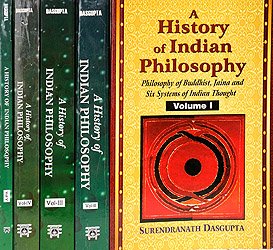A History of Indian Philosophy Volume 1
by Surendranath Dasgupta | 1922 | 212,082 words | ISBN-13: 9788120804081
This page describes the philosophy of unity in indian sadhana (philosophical, religious and ethical endeavours): a concept having historical value dating from ancient India. This is the sixth part in the series called the “general observations on the systems of indian philosophy”, originally composed by Surendranath Dasgupta in the early 20th century.
Part 6 - Unity in Indian Sādhana
[Fill title: Unity in Indian Sādhana (philosophical, religious and ethical endeavours)]
As might be expected the Indian systems are all agreed upon the general principles of ethical conduct which must be followed for the attainment of salvation. That all passions are to be controlled, no injury to life in any form should be done, and that all desire for pleasures should be checked, are principles which are almost universally acknowledged. When a man attains a very high degree of moral greatness he has to strengthen and prepare his mind for further purifying and steadying it for the attainment of his ideal; and most of the Indian systems are unanimous with regard to the means to be employed for the purpose. There are indeed divergences in certain details or technical names, but the means to be adopted for purification are almost everywhere essentially the same as those advocated by the Yoga system. It is only in later times that devotion (bhakti) is seen to occupy a more prominent place specially in Vaiṣnava schools of thought.
Thus it was that though there were many differences among the various systems, yet their goal of life, their attitude towards the world and the means for the attainment of the goal (sādhana) being fundamentally the same, there was a unique unityin the practical sādhana of almost all the Indian systems. The religious craving has been universal in India and this uniformity of sādhana has therefore secured for India a unity in all her aspirations and strivings.
